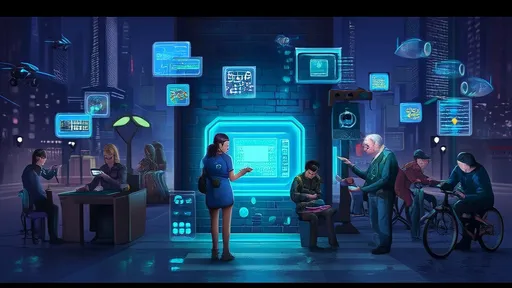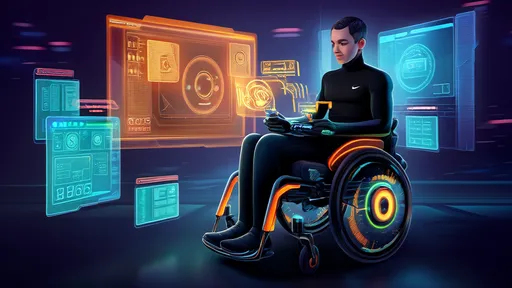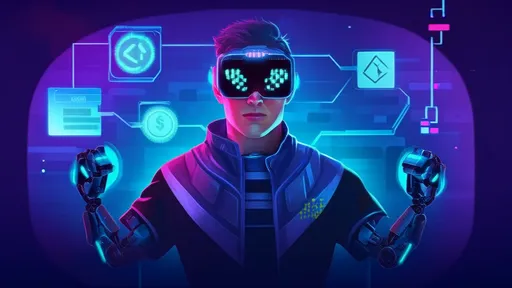The concept of time banking has been quietly revolutionizing local economies around the world, but its latest evolution—Time Bank Gaming—is turning heads in both tech and economic circles. This innovative model merges the principles of skill-sharing economies with the engagement mechanics of video games, creating a hybrid system where players earn "time credits" for services rendered, which can then be redeemed for real-world assistance. What began as a niche experiment in community-building has now blossomed into a full-fledged economic movement, challenging traditional notions of labor and value exchange.
At its core, Time Bank Gaming operates on a simple premise: every hour spent helping another player—whether by tutoring in math, fixing a bike, or designing a logo—earns you one time credit. These credits are stored in a digital wallet and can be spent on services offered by others in the network. The twist? The entire ecosystem is gamified, with achievement badges, leaderboards, and even virtual "quests" that incentivize participation. Unlike conventional time banks, which often struggle with engagement, this model taps into the psychological hooks that make mobile games so addictive.
The real magic happens when these digital credits translate into tangible benefits. In Lisbon, a beta-testing group of 500 users demonstrated the system's viability when a graphic designer traded ten hours of logo creation for a week's worth of homemade meals delivered by a retired chef. Meanwhile, in Tokyo, university students are using the platform to barter language lessons for apartment repairs. The system's flexibility allows for creative exchanges that cash economies can't easily facilitate—like a neurologist trading migraine management advice for help planting a rooftop garden.
What sets Time Bank Gaming apart from traditional bartering systems is its sophisticated matching algorithm. Drawing from dating app technology, the platform analyzes user skills, location, and even personality types to suggest optimal service exchanges. The more transactions completed, the more refined the matches become. Early data shows a 73% higher completion rate for exchanges compared to standard time banking platforms, with users reporting greater satisfaction in the quality of matches.
The economic implications are profound. In regions with high unemployment, Time Bank Gaming creates an alternative labor market where skills—not degrees or job titles—determine one's earning potential. A dropout coding whiz might earn more credits than a tenured professor in this system. During Greece's financial crisis, a local chapter reported over 2,000 monthly transactions among members who'd been locked out of the collapsing cash economy. The platform became a lifeline, allowing people to maintain essential services through skill exchange when euros were scarce.
Critics argue that gamification might trivialize serious economic activity, or that the system could be exploited by those offering low-quality services. However, the built-in review system (modeled after eBay's seller ratings) combined with "credit insurance" for failed exchanges has kept abuse surprisingly low. In fact, the competitive aspects of the game mechanics appear to elevate service quality, as users vie for the prestigious "Five-Star Helper" achievement that unlocks premium features.
Perhaps the most unexpected development has been the platform's psychological benefits. Users report decreased feelings of isolation and increased self-worth, particularly among retirees and stay-at-home parents whose skills often go undervalued in traditional markets. The game's "Daily Good Deed" reminder—which nudges users to offer help without expecting immediate return—has spawned unexpected acts of generosity. In Seoul, this feature led to the formation of a neighborhood walking group where elders teach traditional crafts to youngsters in exchange for tech support.
As the platform expands, entrepreneurs are finding ways to bridge the time credit system with conventional currency. Some cafes now accept partial payment in credits for coffee, while a chain of coworking spaces allows members to pay up to 30% of their fees through platform services. This hybrid model hints at a future where time credits could circulate as a complementary currency, particularly in service-based industries where human connection enhances value.
The next phase of development includes augmented reality features that will notify users when they're near someone who needs a skill they possess. Imagine walking past a library and getting an alert that a student inside needs last-minute calculus help—with the promise of earning credits toward your own dental checkup. This seamless integration of virtual and physical economies could redefine how we perceive and exchange value in our daily lives.
While Time Bank Gaming isn't positioned to replace traditional employment, it's carving out a significant niche in the new economy. By rewarding human skills that algorithms can't replicate and fostering connections that apps typically erode, this model offers something rare in our digital age: a technology that actually brings people together, in person, to solve real problems. As wealth inequality grows and automation displaces more workers, systems like this may prove vital in maintaining both economic resilience and social fabric.

By /Jul 3, 2025

By /Jul 3, 2025

By /Jul 3, 2025

By /Jul 3, 2025

By /Jul 3, 2025

By /Jul 3, 2025

By /Jul 3, 2025

By /Jul 3, 2025

By /Jul 3, 2025

By /Jul 3, 2025

By /Jul 3, 2025

By /Jul 3, 2025

By /Jul 3, 2025

By /Jul 3, 2025

By /Jul 3, 2025

By /Jul 3, 2025

By /Jul 3, 2025

By /Jul 3, 2025